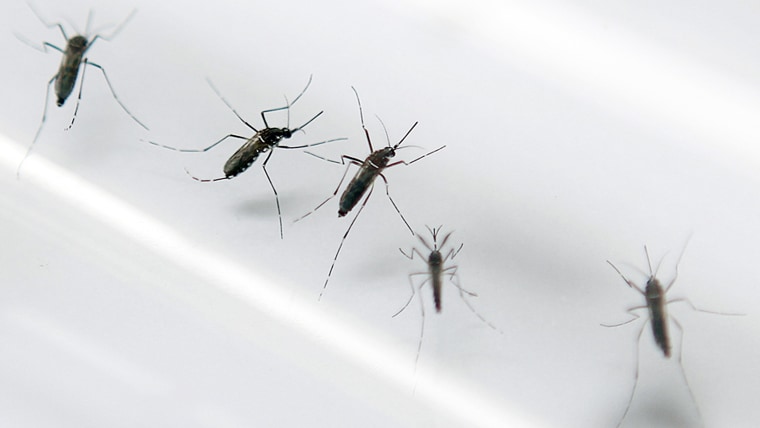Doctors should ask all pregnant women whether they have traveled recently to areas affected by the Zika virus, federal health officials said Tuesday.

Pregnant women showing any symptoms of infection who have been to countries where the virus is circulating should get a test to make sure they’re not infected, the Centers for Disease Control and Prevention said.
And women whose developing babies look like they may have smaller-than-normal heads or brains and who traveled in affected regions should also be tested, CDC said.
What the CDC couldn’t do is offer any advice about treating the infection or protecting the unborn babies. There’s no treatment for Zika, but it usually causes very mild symptoms or, in 80 percent of people, no symptoms at all.
Related: Brazilian City Tries Fighting Viruses With GMO Mosquitoes
It’s not entirely clear if Zika virus actually does cause birth defects but there’s some strong evidence that it might. CDC experts say they don’t know when the most vulnerable time might be. 'They also cannot yet say how much danger there is to the baby if a pregnant woman gets infected.
So the testing is more to gather information for later.
Zika virus is spreading fast across Latin America. It started in Brazil last summer and Brazilian health officials say they’ve noticed a very large increase in cases of microcephaly, in which babies have underdeveloped heads or brains. In extreme cases, the pregnancy is miscarried or the baby dies soon after birth, and babies who survive are usually disabled.
A baby born in Hawaii to a woman who had lived in Brazil recently had microcephaly and also evidence of Zika infection. The virus has been found in the bodies of babies who miscarried and in the amniotic fluid of women whose fetuses had microcephaly.
CDC issued a travel advisory last week saying pregnant women should consider not traveling to Zika-affected areas.
“Health care providers should ask all pregnant women about recent travel,” CDC said.
Symptoms of infection include:
- fever
- red, raised rash
- muscle aches
- pinkeye
Researchers are testing people now to see how common Zika infection is, how many of the new cases of microcephaly in Brazil also have evidence of Zika infection and just how many new cases there really are.
Microcephaly can be caused by other viruses such as rubella, by poor nutrition and by alcohol use during pregnancy. So scientists are also testing women to see if any of those factors might be involved, or if perhaps it’s a mixture of two or more risk factors that cause the birth defect.
Women are also being told to avoid mosquito bites. Mosquito repellants including DEET are safe for pregnant women to use, and people should also wear long sleeves and stay indoors in places where mosquitoes might be.
“Mosquitoes that spread Zika virus bite both indoors and outdoors, mostly during the daytime; therefore, it is important to ensure protection from mosquitoes throughout the entire day,” CDC noted.
These same mosquitoes also spread dengue virus and chikungunya, so women who test positive with a quick test need further testing to see which virus is causing the symptoms. They’re all related and they can all give a positive finding on the fast test.
There is no quick test for Zika virus alone.